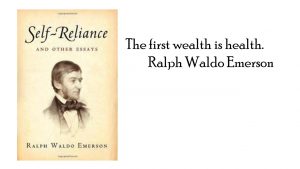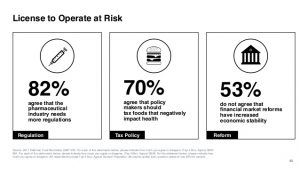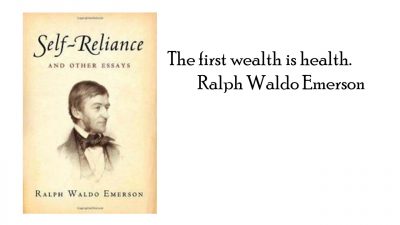 Health and money are the two issues about which Americans have set New Year’s resolutions, according to the Harris Poll, Americans Look to Get Their Bodies and Wallets in Shape with New Year’s Resolutions.
Health and money are the two issues about which Americans have set New Year’s resolutions, according to the Harris Poll, Americans Look to Get Their Bodies and Wallets in Shape with New Year’s Resolutions.
The top goals U.S. consumers have set for 2017 are to:
- Eat healthier, 29% of all U.S. adults
- Save more money, 25%
- Lose weight, 24%
- Drink more water, 21%
- Pay down debt, 17%
- Spend more time with family and friends, 15%
- Get organized, 15%
- Travel more, 15%
- Read more, 14%
- Improve relationships, 14%.
There are some marked differences between American men versus women across these resolutions; the most dramatic Mars v. Venus chasm is with respect to losing weight, which is a priority for 29% of women and only 18% of men (an 11 percentage-point gap). The second largest gap between men and women, arguably related to the first on losing weight, is to eat healthier with 33% of women resolving to do so compared with 23% of men.
A growing resolution set on January 1st is to plan a “dry January:” that is, to resolve to drink less, or no, alcohol for the first month of the New Year. Nearly one-half of all U.S. adults vowed to do so, and roughly 1 in 4 people said they’d drink only in social situations, go out to bars less often, or participate in a total drinking hiatus, Harris found. Dry January is seen as a healthy activity, in addition to adopting other health-focused behavior change — especially with respect to food and healthy eating.
One intriguing finding, overall, is that the prevalence of resolution-setting decreases with age: Millennials are keenest to set annual goals, with 80% doing so. Contrast that majority to 47% of people age 55-64, and 35% of people 65 and over setting annual resolutions.
For this survey, Harris interviewed 2,241 adults 18 and over online between January 12 and 16, 2017.
Health Populi’s Hot Points: Every January brings New Year’s resolutions. In addition, January also brings the annual 2017 Edelman Trust Barometer to the World Economic Forum in Davos. Since 2007, Edelman has presented the results of this global survey at the WEF, reporting out the results of a poll into public’s faith in institutions. The research was conducted online in 28 countries in October and November, 2016.
 The 2017 Barometer revealed an even wider gap in public trust than in 2016, with declining trust in government and media — the two organizations most distrusted in the survey. While trust in business and NGOs slightly fell, their net trust level is still over 50%. On the other hand, in 2017, only 43% of consumers trust the media, and 41%, government.
The 2017 Barometer revealed an even wider gap in public trust than in 2016, with declining trust in government and media — the two organizations most distrusted in the survey. While trust in business and NGOs slightly fell, their net trust level is still over 50%. On the other hand, in 2017, only 43% of consumers trust the media, and 41%, government.
One key finding speaks to consumers’ interest in the intersection between public policy and food, shown in the graphic from the Edelman report, “License to Operate at Risk:” that 70% of consumers agree that policy makers should tax foods that negatively impact health.
Food has become, in the eyes of the consumer, medicine and a gateway to health. People are looking for support from the greater health/care ecosystem to boost behavior change for healthy eating and weight loss, and a safe, high-value food system is part of peoples’ expected social compact with policymakers. This is one aspect of public policy that impacts health citizens across party identifications. We, The People, have resolved to lose weight, eat better, and bolster financial wellness.





 Interviewed live on BNN Bloomberg (Canada) on the market for GLP-1 drugs for weight loss and their impact on both the health care system and consumer goods and services -- notably, food, nutrition, retail health, gyms, and other sectors.
Interviewed live on BNN Bloomberg (Canada) on the market for GLP-1 drugs for weight loss and their impact on both the health care system and consumer goods and services -- notably, food, nutrition, retail health, gyms, and other sectors. Thank you, Feedspot, for
Thank you, Feedspot, for  As you may know, I have been splitting work- and living-time between the U.S. and the E.U., most recently living in and working from Brussels. In the month of September 2024, I'll be splitting time between London and other parts of the U.K., and Italy where I'll be working with clients on consumer health, self-care and home care focused on food-as-medicine, digital health, business and scenario planning for the future...
As you may know, I have been splitting work- and living-time between the U.S. and the E.U., most recently living in and working from Brussels. In the month of September 2024, I'll be splitting time between London and other parts of the U.K., and Italy where I'll be working with clients on consumer health, self-care and home care focused on food-as-medicine, digital health, business and scenario planning for the future...